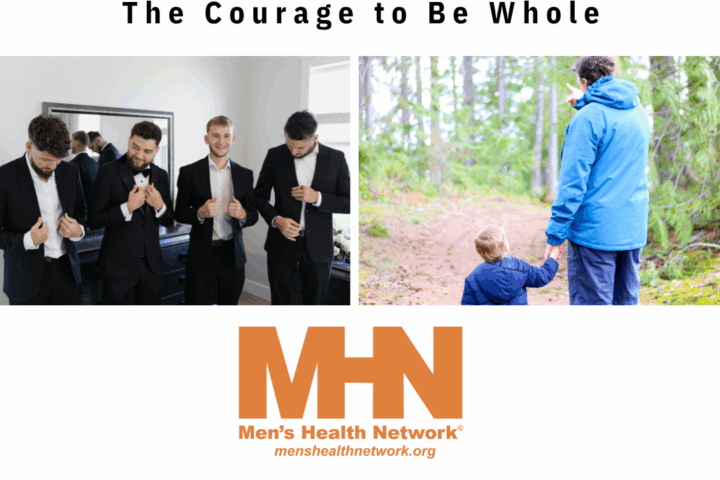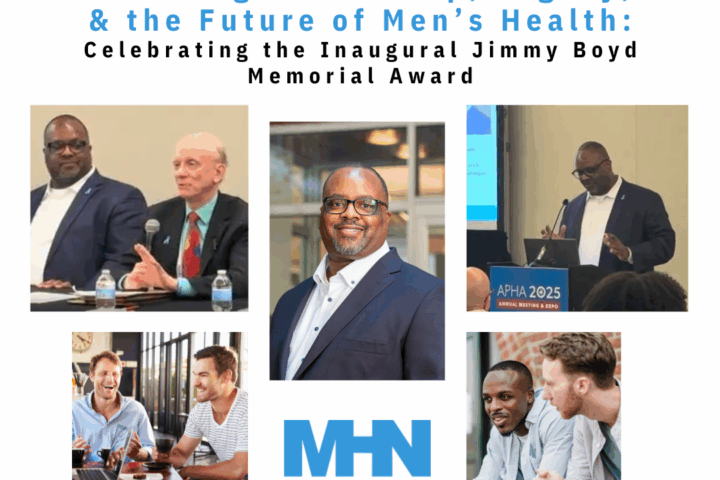With the launch of President Obama’s “My Brother’s Keeper” initiative in 2014, many of the issues facing young African American men suddenly hit the front pages. However, there has been an unfortunate tendency to look at African American men’s health issues as narrowly affecting only that particular group. The reality is quite different. Health problems affecting African-American men may also have a profound impact on health outcomes for African-American women and children. Consequently, it is critical that healthcare professionals—and society as a whole—start paying more attention to minority men’s health.
Why it Matters
In 2010, U.S. Census Bureau reported that life expectancy at birth for white females was 81.3 years and for black females, 78 years. For males, however, life expectancy was 76.5 years for whites, 71.8 years for blacks. Those numbers vary greatly by region. In Fulton County Georgia, for example, which comprises most of the city of Atlanta where I life and work, the average African American male life expectancy remains below 65 years—too young to collect social security. According to the Fulton County Department of Health and Wellness, African American males constituted only 24% of the population but 42% of all premature deaths and 50% of all years of potential life lost.
Nine of the ten leading causes of death (as defined by CDC) affect men more than women. Eight of those ten affect African Americans more than whites. African American men as a group are at extraordinarily high risk of illness and death. That impacts the African-American community at many levels, and limits the overall potential for health in the African American community.
What’s the Cause?
There are a number of factors that negatively affect black men’s health. Lifestyle issues, such as diets high in calories, animal fat, salt, and refined products put African American males at increased risk of fatal and premature heart disease over other demographic groups. These diet issues are exacerbated by the relative lack of healthy foods in African American communities, where there tend to be fewer supermarkets and more fast-food restaurants and convenience stores. (A New Orleans study recently found an average of 2.4 fast-food restaurants per square mile in predominantly black neighborhoods, but only 1.5 per square mile in predominantly white neighborhoods.
To make things worse, alcohol use is encouraged, especially among minority males, by a markedly greater prevalence of liquor stores in predominantly black census tracts (a disparity that persists in multivariate analysis even when controlling for socioeconomic status). The health risks of excessive alcohol use include chronic liver disease, falls, drownings, motor vehicle and other accidents, fetal alcohol syndrome; head, neck, stomach, and breast cancers; homicide (either as a victim or a perpetrator—African American males aged 15-19 are victims of homicide at 46 times the rate of white males 15-19), risky sex behaviors leading to unplanned or unwanted pregnancies and/or sexually transmitted diseases (including HIV/AIDS). All of these are more prevalent among blacks than any other ethnic group.
According to the American Lung Association, “African American men are 37 percent more likely to develop lung cancer than white men, even though their overall exposure to cigarette smoke – the primary risk factor for lung cancer – is lower”.
In addition, despite African Americans’ prominence in professional sports, overall, African Americans are far less physically active than whites. Physical inactivity is as powerfully linked to cardiovascular disease as smoking and high cholesterol, and is strongly associated with a number of chronic diseases, including hypertension and type II diabetes, and obesity (black men are more likely than white men to be obese, and black women are nearly twice as likely as white women to be obese). Physical inactivity is due, in part, to limited access to recreational facilities and high crime rates in black neighborhoods.
Doctor Visits
Some of these issues are, undoubtedly, biologically based. But there’s no doubt that they could be mitigated by getting minority men engaged in their own healthcare. Sadly, that has been a significant challenge to those of us who work in men’s health. Men overall—and African American men in particular—are about half as likely as women to participate in preventive health care or to have seen a healthcare provider in the previous 12 months (even after factoring out pregnancy- and childbirth visits).
Why don’t men get healthcare? That’s the billion-dollar question. And there are a number of answers. It all starts from boyhood, where young males get the message that “big boys don’t cry” that “a man takes care of his own problems,” that healthcare is something women (not men) are involved in, and that seeking help is a sign of weakness. There’s also an ingrained distrust of the healthcare system among many minority populations and a distinct shortage of healthcare information and male-specific health programs. One of the biggest factors, however, is the lack of health insurance: African American (and Hispanic) men are the least likely of any racial group to carry health insurance. One in four African American men and one in five African American women are uninsured, while only one in ten white men and women lack coverage.
Finally, given the adverse life circumstances characteristically faced by African American men and lack of cultural competence in the mental health care system in working with this demographic group, it is likely that African American males have vast unaddressed mental health needs. Twice as many women as men are diagnosed with major depression, but men commit suicide four times more often than women, and abuse alcohol and drugs at least twice as often. Adolescent African American males previously had lower suicide rates than their white counterparts, but suicide is now believed to be equally or more prevalent in this group.
The Effects
Clearly, minority men’s disproportionately high health risks are devastating to the men themselves. They also take a heavy toll—economic, physical, and psychological—on their families and their communities. Chronic illness, disability, premature death, intentional injury (such as homicide and suicide), and unintentional injury (such as workplace and motor vehicle accidents), often affect women and children directly and/or indirectly by reducing (or eliminating) the family’s financial support and disrupting family relationships.
HIV and other infectious diseases, which have taken a severe toll on African-American men owing to substance abuse and sexual behavior, have proven readily transmissible to African-American women through sex, and in turn to children through women
Where Do We Go from Here?
Getting black men into the health care system isn’t going to be easy, but there are a number of things we can do that can have immediate, positive effects. Public Service Announcements can raise public awareness of black men’s health issues. Effective health care events can engage entire families to bring men in, explain and promote understanding of disease processes and management, provide good-tasting samples of healthy food, treat health screenings as a group event like going to a football game, and use a peer to peer approach utilizing African American male health care providers and well regarded public figures.
The benefits to the African American community of promoting African American men’s health include improving family stability, reducing health care costs through preventing advanced disease, reducing work absenteeism, building an inclusive health care system, and achieving optimal overall community health.
Increasing attention to the health of African-American men in no way detracts from the attention paid to the health of other groups. Instead, we should welcome it as a logical complement to women’s health and an essential component of building a complete and inclusive health care system and achieving optimal overall health in African American communities.




This is a great topic you are discussing about, Dr. Jean. I am currently working on a research paper on the father-absence crisis affecting most African American families. In the project, I focused on some barriers to the father’s presence, health implications on the mother and children, and anything else that can shed lights on the reason for the existence of the crisis in this particular minority group.
It is surprising to know that some of the points you hit in your discussion were reflected in the studies I read. How great is that!
And lastly, I do agree with the solution you provided, in terms of increasing awareness and achieving a inclusive health care system.